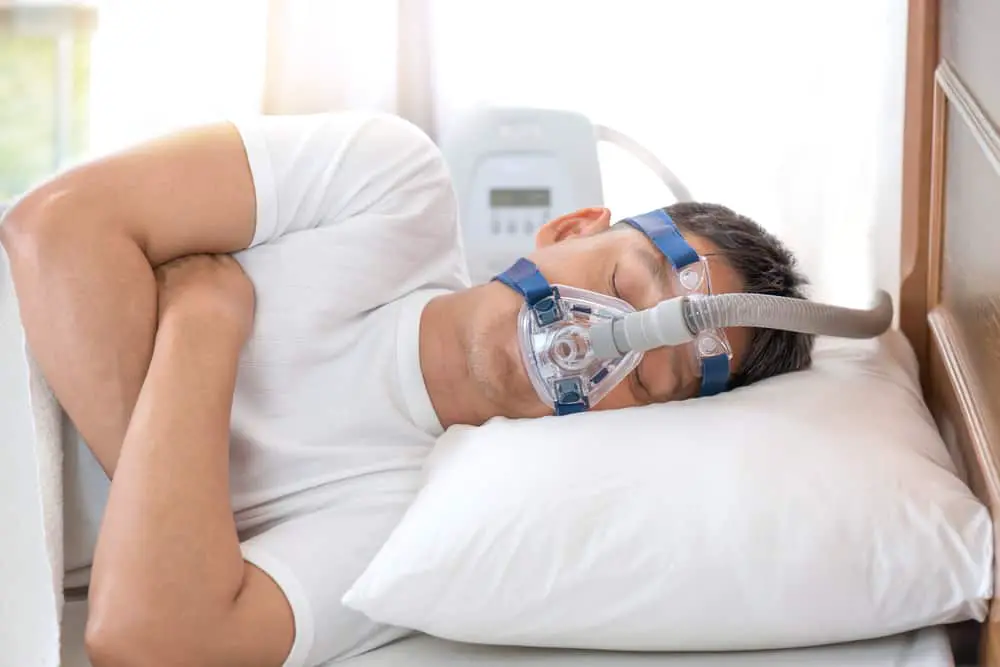Obstructive sleep apnea is when negative pressure is applied to your airway during your sleep, forcing your breathing to become labored and affecting your oxygen levels.
Common factors that can lead to this are age, lifestyle, excessive weight, or a predisposition to narrow airways. Central sleep apnea occurs when there is miscommunication between your brain and your muscles in your chest that helps control your breathing.
Sleep apnea can cause higher blood pressure at night by decreasing the levels of oxygen in the blood. This puts a heightened strain on the cardiovascular system which increases your blood pressure and your chances of suffering from nocturnal hypertension.
Some of the more common signs that you may have sleep apnea include a breathing pattern that seems to start and stop while you sleep, excessively loud snoring or gasping, and/or you feel exhausted during the day despite having a long sleep.
It is important to seek medical attention if you think you have sleep apnea as nocturnal hypertension from sleep apnea can cause heart attacks and abnormal heart rhythms. You may be referred for a sleep study before any treatment will be carried out to ensure that you receive an accurate diagnosis.
Using a CPAP (continuous positive airway pressure) machine to treat your sleep apnea can lower your blood pressure by regulating your breathing and relieving negative pressure on your airway.
Other medical issues could cause high blood pressure at night so it is always worth getting checked out by your doctor to rule these out.
Can sleep apnea cause high blood pressure during the day?
While sleep apnea does cause a spike in blood pressure which can carry through to the next day, those with hypertension already are at higher risk of sleep apnea.
It is estimated that 30-50% of people with high blood pressure have sleep apnea. Obstructive sleep apnea occurs most commonly in those aged 30-70.
Most sufferers of high blood pressure do not have symptoms unless their blood pressure is significantly high or is elevated for a prolonged period. If left, over time hypertension puts increased pressure on your cardiovascular system which can lead to heart attacks and strokes.
The best way to keep an eye on your blood pressure is to have regular checks at your doctor’s office. If you are worried or if you have a family history of high blood pressure, it is worth investing in an affordable and reliable home blood pressure machine. You can monitor your blood pressure regularly and check it at certain times of day or night for any patterns.
These are easily found at your local drug store or online and are straightforward to use. It is important to successfully identify the best combination of treatments for those with high blood pressure and sleep apnea to avoid long-term strain and consequences.
Does sleep apnea cause morning high blood pressure?
Obstructive sleep apnea can cause your blood pressure to rise at night and this can carry over into the morning in some cases. It is perfectly normal to have slightly higher blood pressure in the morning as your body’s circadian rhythm produces adrenaline and noradrenaline ready for the day ahead.
For many sufferers of sleep apnea, however, it is common to suffer from a sudden spike in blood pressure in the morning. This is due to the activation of your sympathetic nervous system, releasing stress hormones into your blood. This triggers a “fight-or-flight” type of response and raises your blood pressure.
This strain on your body also makes you extremely fatigued over time, no matter how much sleep you are getting. Your body becomes exhausted from having to overwork to breathe efficiently.
The adrenaline that your body produces to deal with this stress, puts a strain on your heart. It is similar to when you feel wiped out after a traumatic or extremely stressful event.
Your doctor may wish to treat your sleep apnea and hypertension separately although, by using a CPAP machine to treat sleep apnea, your blood pressure should improve. Over 12 weeks of constant and consistent use, a CPAP machine can lower your daily average blood pressure effectively.
How much does sleep apnea raise BP?
For those who do not suffer from sleep apnea, blood pressure decreases as they relax when they go to sleep. However, if you suffer from sleep apnea, your body does not get this downtime, with added stress being caused to your body instead.
Although most people with sleep apnea will suffer from a rise in blood pressure, it can affect sufferers differently. For some, their blood pressure does not necessarily increase but it also does not decrease as it should with sleep normally.
Others with sleep apnea may notice a spike in their blood pressure in the morning that may or may not continue throughout the day.
A ‘perfect’ blood pressure reading is around 120/80 mm Hg. The top number is the systolic reading and the bottom number is the diastolic reading. The systolic reading can be between 110 and 130 for a healthy adult and does not cause concern.
However, if the systolic blood pressure reading is above 120 over a sustained amount of time, with a diastolic reading of below 80, this would be considered as a high reading.
The trouble is, what is classed as normal blood pressure, may not be normal for you. You must know what your “normal” blood pressure is so that you can accurately monitor yourself for spikes.
If you have been having regular checkups, see if your doctor can provide your history of readings so you can work out your average and then monitor yourself at home. Even though you may not necessarily notice when your blood pressure runs high, it needs to be kept under control to avoid long-term, serious

Damon Wiseley is a Registered Respiratory Therapist and Certified Pulmonary Function Technologist.
